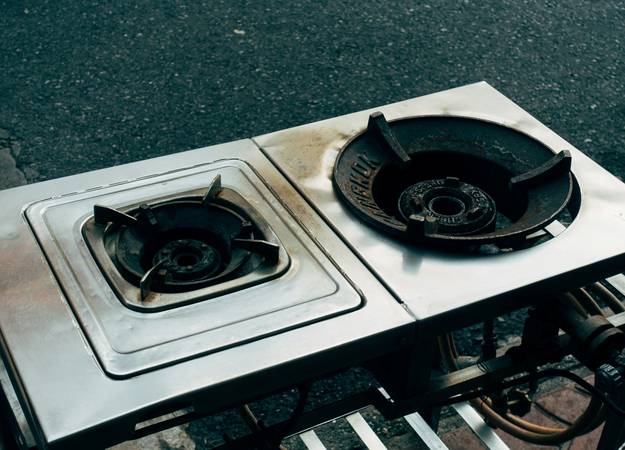Overview: The Main Types of Heating Stoves
Heating stoves are a popular choice for supplemental or primary home heating due to their efficiency, ambiance, and versatility. The most common types of heating stoves include:
- Wood Stoves – Classic and timeless, fueled by split logs or firewood.
- Pellet Stoves – Automated and eco-friendly, burning compressed wood pellets.
- Gas Stoves – Clean and convenient, operating on natural gas or propane.
- Electric Stoves – Plug-in simplicity, with zero emissions and flexible placement.
- Coal Stoves – High-output and durable, using coal for long-burning heat.
Each type offers unique benefits and drawbacks. Below, we break down the features, costs, and ideal scenarios for each stove category.
Heating Stove Types Compared
| Type | Fuel Source | Efficiency | Upfront Cost | Best For |
|---|---|---|---|---|
| Wood | Firewood (logs) | 60–80% (EPA-certified) | $$ | Rural/off-grid, ambiance, renewable fuel |
| Pellet | Wood pellets | 70–85% | $$$ | Automated heating, eco-friendly homes |
| Gas | Natural gas or propane | 70–90% | $$–$$$ | Convenience, fast heat, low maintenance |
| Electric | Electricity | ~100% (at point of use) | $–$$ | Zone heating, rentals, easy installation |
| Coal | Anthracite or bituminous coal | 60–80% | $$–$$$ | Very cold climates, long burn cycles |
Note: Upfront cost estimated as $ (least) to $$$ (most). Efficiency values are approximate and vary by model.

How to Choose the Right Stove Type
Choosing a stove is about more than just the fuel. Consider these key factors:
- Fuel Availability: Is wood, pellets, gas, or coal readily available in your area?
- Heating Needs: Do you need whole-house heating, zone heating, or backup for emergencies?
- Convenience: How much daily effort are you willing to invest in fueling and cleaning?
- Installation & Space: Some stoves require chimneys or venting; others need only a power outlet.
- Budget: Weigh upfront purchase and installation costs against long-term fuel expenses.
- Environmental Impact: Consider emissions, renewable fuel options, and energy efficiency.
In-Depth: Features of Each Stove Type
Wood Stoves
Wood stoves are beloved for their traditional charm and renewable fuel. Modern EPA-certified models are efficient and emit far less smoke than older designs. They require regular wood loading, chimney cleaning, and a supply of seasoned firewood.
- Low fuel cost if you supply your own wood
- Can operate off-grid
- Requires manual tending and frequent ash removal
- May not be suitable in areas with wood-burning restrictions
Pellet Stoves
Pellet stoves automate the burning process using compressed sawdust pellets. They offer high efficiency, programmable thermostats, and minimal emissions—but require electricity to operate and need regular hopper refills.
- Consistent, clean heat with little smoke
- Easy temperature control
- Depend on pellet fuel supply and electricity
- Upfront cost higher than most wood stoves
Gas Stoves
Gas stoves offer unmatched convenience—just flip a switch for instant heat. They burn natural gas or propane, require minimal maintenance, and can run even during power outages (with a standing pilot).
- Very clean-burning, low emissions
- No need to store or haul fuel
- Requires gas line or propane tank
- Heat output may be lower than wood or pellet in large spaces
Electric Stoves
Electric stoves are the simplest to install—just plug them in. They’re safe, portable, and ideal for supplemental zone heating or rentals. However, they rely on grid power and can be expensive to operate for large spaces.
- No emissions or venting required
- Great for apartments and small rooms
- Instant on/off and adjustable heat
- Won’t work during power outages
Coal Stoves
Coal stoves deliver powerful, long-lasting heat—especially suited to very cold climates. They require regular ash removal and careful fuel handling, and are less common in urban or eco-conscious settings.
- Long burn times (8–24 hours per load)
- High, steady heat output
- Coal storage and ash disposal required
- Fuel availability may be limited regionally
Related Guides
Choosing a Heating Stove
A step-by-step guide to picking the right stove for your space, fuel needs, and budget.
Read GuideStove Fuel Types
Compare fuel costs, storage, and efficiency—wood, pellets, coal, gas, and electric—all in one spot.
Learn MoreStove Installation Guide
Understand venting, clearances, codes, and best practices for installing any type of heating stove.
Read the Guide